Poobah | Interview | Burning In The Rain: An Anthology
For years, Poobah’s name was whispered in the dim corners of the rock underground, their sound an elusive blend of power and rough spirit that no one could quite pin down.
The kind of band whose legacy was built on the adrenaline of their live performances and the searing grit of their records, Poobah were the kind of act that got under your skin and stayed there, long after the needle lifted. Now, Ripple Music has released ‘Burning In The Rain: A Poobah Anthology,’ a sprawling 17-track collection that pulls back the veil on one of hard rock’s best-kept secrets. Combining the psychedelia of early Cream with the fuzzed-out heaviness of Black Sabbath, Poobah created a very heavy sound. This 17-track collection spans the band’s career, showcasing their incendiary live performances and infectious energy, with classics like ‘Mr. Destroyer’ burning through the speakers. With their riffs, Poobah blazed a trail in proto-metal and heavy psych. ‘Burning In The Rain’ is essential for anyone who loves 70s rock, and a must-have for those seeking to discover a hidden gem of the era.
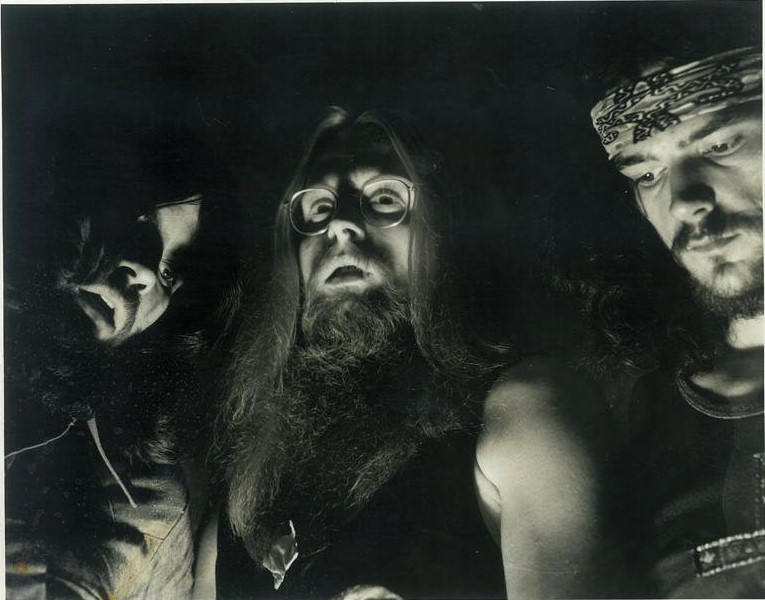
“I think I have recorded enough Poobah material to release about 20 albums”
‘Burning In The Rain: An Anthology’ is a sprawling journey through Poobah’s career. What does it feel like to see your life’s work encapsulated in this collection? Are there any tracks that still resonate with you as powerfully as they did when you first recorded them
Jim Gustafson: I really love ‘Burning In The Rain.’ The 2-record set covers a lot of different periods in my life. It brings me lots of good feelings and is satisfying to listen to. Holding the cover is a great experience for me—it reminds me of good times and fun experiences, and it pleases me to hear these songs in one very nice package. Every song on this album takes me back in time, reminding me of so much fun—recalling the songs, the words, and some of my favorite guitar parts. Having this group of powerful tracks together is just fabulous to me. I don’t get tired of these songs.
Looking back at the early days of Poobah, particularly the creation of ‘Let Me In,’ what was the atmosphere like in the studio? Did you have a sense that you were creating something that would achieve cult status, or were you simply caught up in the energy of the moment?
‘Let Me In’ has become very collectible vinyl—who would have thought you could see this happening? It’s quite surprising to have watched it keep growing and getting more popular than ever. I recall being in Peppermint Recording Studio in Youngstown, Ohio, about eight months after spending five days working with Jimi Hendrix’s bassist Billy Cox in Memphis, Tennessee. I was still thinking about all the wisdom I learned from him as a producer. He had engineer Jerry Lee Lewis’ bassist, B.B. Cunningham Jr.—who also played with The Hombres on their hit record ‘Let It All Hang Out’—record us.
When we started recording at Peppermint Studio, I already had some training from previous studio work and knew how to approach it. I had confidence in my abilities, having played shows since I was 14. I felt I had good songs and had learned a lot from talented engineers and producers like Billy Cox. We definitely thought we were getting great sounds, even though some other musicians at the studio acted like we were crap. The Memphis studio was Sounds of Memphis, not far from Elvis’s house. That said, backstabbing people there tried to act like they were “special” while saying we weren’t very good behind our backs. Now I know jealousy is a bad thing.
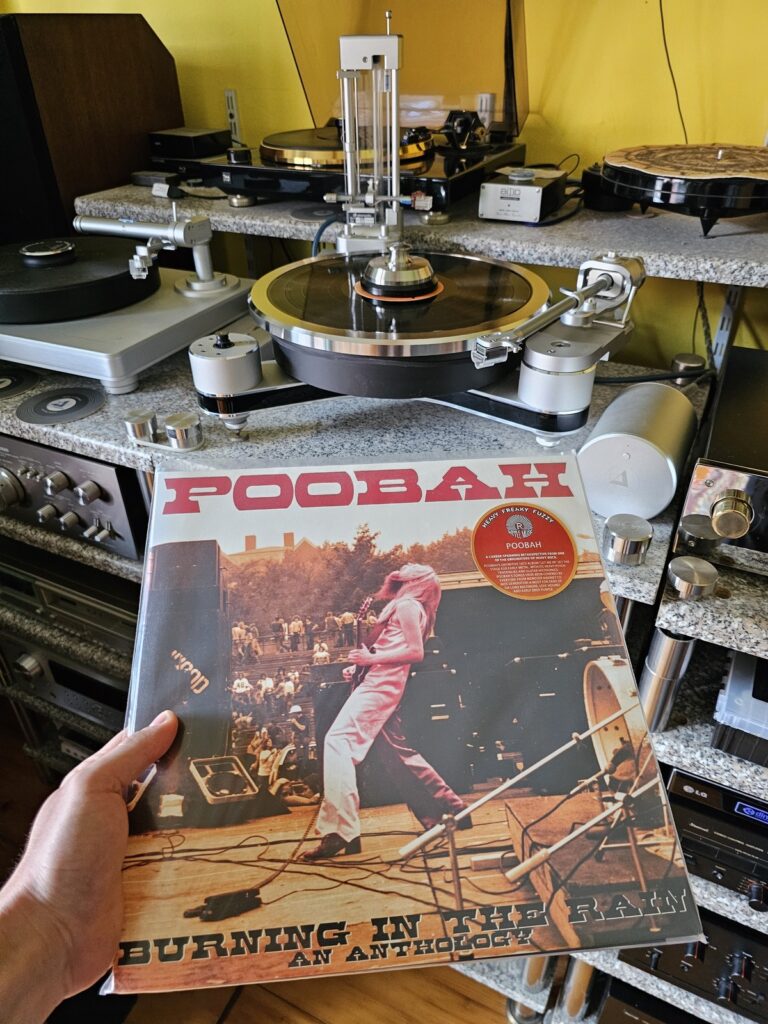
Your music has always been a melting pot of influences, from the psychedelic flair of Cream to the heavy riffs of Black Sabbath. How did you and your bandmates develop this distinctive sound, and were there any unexpected influences that shaped your music?
I loved The Beatles, Stones, Hendrix, Cream, and The Yardbirds. My older sister had lots of records, so I also heard Motown, Dave Clark 5, The Searchers, Mitch Ryder, and The Animals. We both loved The Animals Greatest Hits, and I still love it. Then, my older neighbor told me to go buy Led Zeppelin. That brought some amazing stuff onto my horizon: Jeff Beck, Al Di Meola, John McLaughlin, Steve Morse, Joe Walsh, Tony Palkovic, Phil Keaggy, Michael Hedges, and many more were added to the mix. I dug The Who, Black Sabbath, Pink Floyd, and Montrose too. I really listened to a lot of different albums.
I pretty much just played, and songs came out naturally. I practiced so much that girlfriends would yell at me. In my high school years, an area band called The Human Beinz was so popular they drew huge crowds. I saw them play, and they had a great sound. They later had a huge hit with their cover of The Isley Brothers’ ‘Nobody But Me.’ The song became a giant classic, but the guys broke up soon after they scored that hit.
I thought, “Wow, they went from being a regional sensation where I grew up to worldwide fame, and then kind of saw the business and said, ‘Not for me.’” It’s hard to keep a band together.
I started out wanting to sing and play guitar, so I jumped headfirst into both. I saw lots of bands and really paid attention to the ones who were awesome.
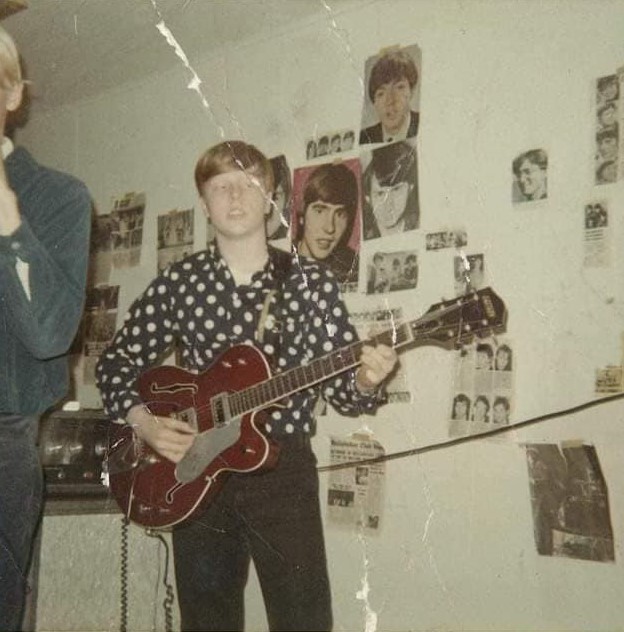
The rock scene in the ’70s was known for its larger-than-life personalities and intense touring schedules. Do you have any memorable stories from the road, particularly when opening for legends like Alice Cooper, ZZ Top, and Judas Priest?
We were really busy back then—lots of traveling to big and small areas, rocking every place that let us play. Thousands of shows. It was fun, and when I was in motels and hotels, I spent a lot of time writing songs. I’m glad I did that. I’ve enjoyed almost every moment of playing guitar. When I got to play shows with famous artists, I would often meet them.
Alice Cooper’s red-haired roadie once tried to steal my brand-new Marshall stack out the back door of Struthers Fieldhouse in Ohio. My roadie, Kirk Evans, grabbed me and said, “Run to the stage back door now!” We both ran out, and the red-haired roadie had already rolled my expensive guitar amp into a Ryder truck. I said, “Hey, you’re stealing my amp!” He replied, “Oh, we thought it was Alice Cooper’s.” I said, “Bull, and if you don’t move it back now, I’m going to yell at the 10 policemen standing nearby working the show to arrest you.” Of course, he lied, saying, “Honest mistake.” Yeah, sure it was. He then moved it back down to us. He looked like he had bad problems.
Playing with Judas Priest was great fun. We got a loud audience reaction and were smiling as we went off stage. Their stage manager said in a British accent, “Congratulations, boys, you did real good. I always can tell when the other act goes over well because nobody pelted them! Nobody threw anything at you guys, so you did good, haha.”
I gave Glenn Tipton and Ian Hill from Judas Priest original Poobah vinyl pressings of ‘Steamroller.’ I hear some of my lyrics from ‘Jump Thru the Golden Ring’ on ‘Heads Are Gonna Roll.’ Hmm…
Poobah has seen several lineup changes over the years. How did these changes affect the band’s dynamic and creative process? Did they bring new influences and ideas, or did you work to maintain a consistent sound?
After you play in a band for a while, you get used to people coming and going. So many different opinions about things—and often bad business behavior—can break up the act. You can’t usually stop people from being silly, rude, or dumb, and sometimes they’re one foot out the door before they even get there. I try to keep lineups going, hoping to be successful with what you can do.
Because some others were horrible to deal with, I was kind of forced to learn lots of instruments, and my vocals kept me from relying on people who didn’t care about the band. I can still move forward if they leave. It’s often refreshing to play with others, but if they won’t show up, you can still record. I love to play guitar.
Your track ‘Mr. Destroyer’ was recently covered by Monster Magnet. How does it feel to see newer generations of musicians paying homage to your work?
‘Mr. Destroyer’ was the first song I wrote for Poobah. It was also the first song recorded for the ‘Let Me In’ album. When I received a message from Dave Wyndorf of Monster Magnet saying he was going to record my song ‘Mr. Destroyer,’ I was thrilled to hear that. I had bought some Monster Magnet albums a while back and dug them, so it was amazing to see that happen.
I’ve since met members Bob Pantella and Garrett Sweeney a few times, and they rock. They said they enjoyed recording my song. Garrett mentioned he used his Goldtop Gibson Les Paul on the track. I love it.
Tony Reed also recorded my song ‘Walk of the Bug.’ Cool. Feels good. Of course, Tony Reed has now joined Pentagram.
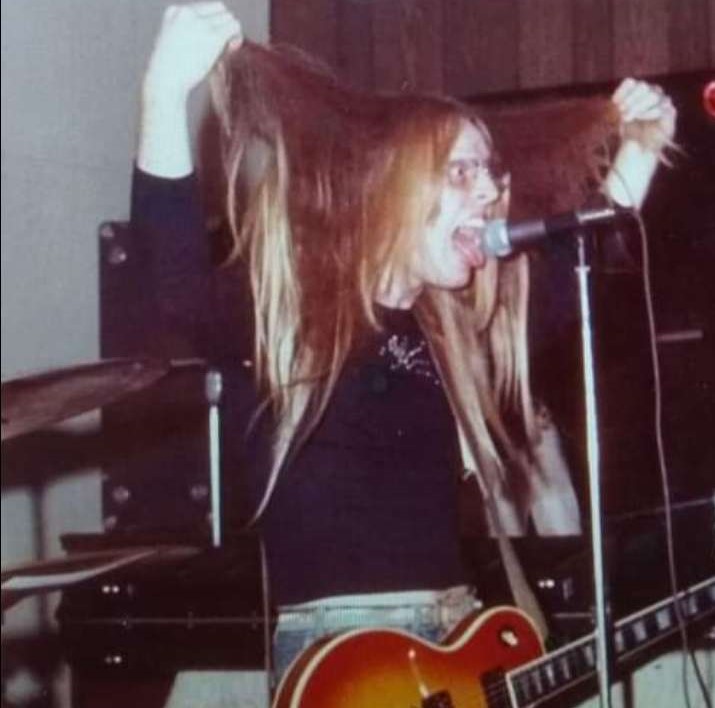
Despite the ups and downs of the music industry, you’ve managed to keep Poobah alive and kicking for over four decades. What has driven your enduring passion for music?
I found out just how hard it is to keep a band together. You’ve got all these different opinions about how things are done. I think that I truly believed in my songs. I thought, no matter what, try to record my songs. Sometimes, it has been seemingly difficult to find ways to get people to actually go to the studio and get the songs recorded. One person doesn’t like someone else that day—always some drama getting in the way.
I’m really surprised, looking back, that somehow I managed to get all those songs recorded. It was not easy, and often some musicians wanted to be treated “special” and had to be convinced to just do their job.
However, there was a lot of satisfaction in hearing back the recordings. A good song, recorded well, is a magical feeling of accomplishment. That satisfying feeling drives you to try harder. I often thought, even if no one hears this, at least I love hearing the song. At least it pleases me, even if it goes nowhere. Now, seeing it come to life is a very good, happy feeling of accomplishment.
‘Steamroller’ is often cited as one of Poobah’s most revered albums. What do you think sets it apart from your other work, and how do you feel about the resurgence of interest in it with the reissues?
‘Steamroller’ is a great example of recording what you like, versus what a producer of pop hits would release. I had a guy who worked as a manager for a band tell me, “No one wants to hear long songs or long guitar solos.” I laughed at his suggestions.
When we went to the studio, we had rehearsed for weeks and spent a lot of time preparing for the sessions. I was determined to record what I thought was very good, with the best playing we could do. I wanted to showcase the talent of our band and thought, do what makes us happy.
It looks like that may have been part of the reason people love the ‘Steamroller’ album. It is fun and powerful playing that speaks volumes about doing what you think is good. Decades later, lots of people tell me they love the ‘Steamroller’ album and that it’s something different from the rest of the competition.
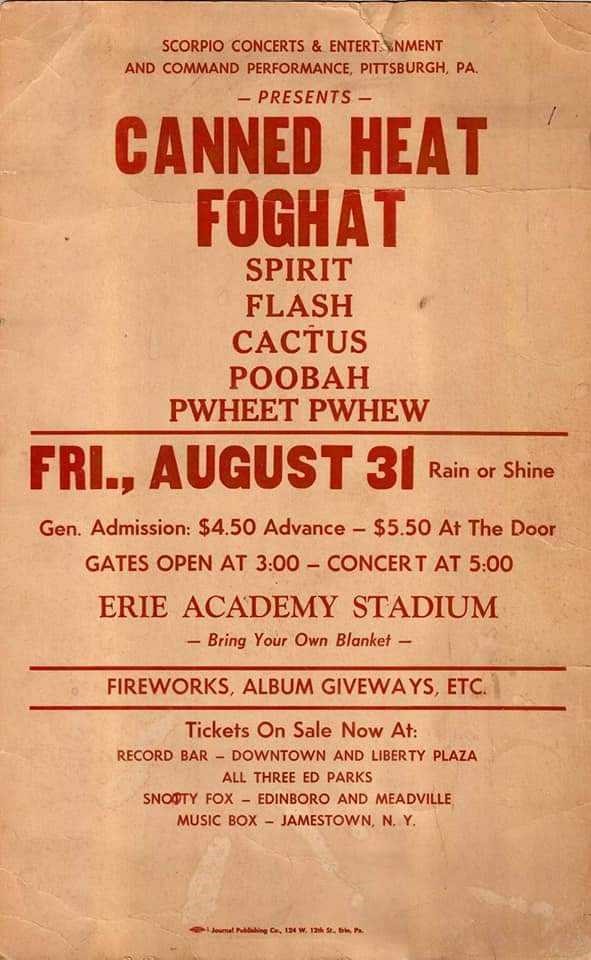
‘Burning In The Rain’ spans your entire career, but if you had to pick a single defining moment or milestone that encapsulates the essence of Poobah, what would it be and why?
I kind of feel like ‘Burning In the Rain’ is a good example of recording what I think is good material and good songs. I’ve had lots of moments where one Poobah song is my favorite, and then I listen to another one and start thinking, maybe this is my favorite song.
‘Bowleen,’ ‘Jump Thru the Golden Ring,’ ‘Thru These Eyes,’ ‘Mr. Destroyer,’ and ‘Enjoy What You Have’ are very close to my heart. I’m not saying some of the newer Poobah songs aren’t great—it’s just hard to pick one. ‘It Out,’ ‘My Name Is Mud,’ ‘Destination,’ and ‘Debris’ are amazing recordings, too.
It’s hard to pick any one era or song because, honestly, I’ve had so much fun playing, recording, and meeting new friends out there. It’s all been such good times for me. ‘Bowleen’ is close to my heart.
Poobah’s live shows have always been a key part of your identity. How do you prepare for a performance?
Playing live shows has been an incredible pleasure for me. I don’t care if it’s 10 people in the audience or 25,000 people, I always try to give my best. When people tell me they enjoyed the show or tell me how a certain song appeals to them, it gives me that magic I was trying to give them. After playing thousands of shows, I’ve developed a route to how to rock people. It’s definitely satisfying when you get cheered loudly for. I do often play what I want, but I still try to please others with the sounds we make.
The secret to maintaining an electrifying show is a combination of talent, expression, and showing others in a different way how to give them the best you can be. Give your all to the people.
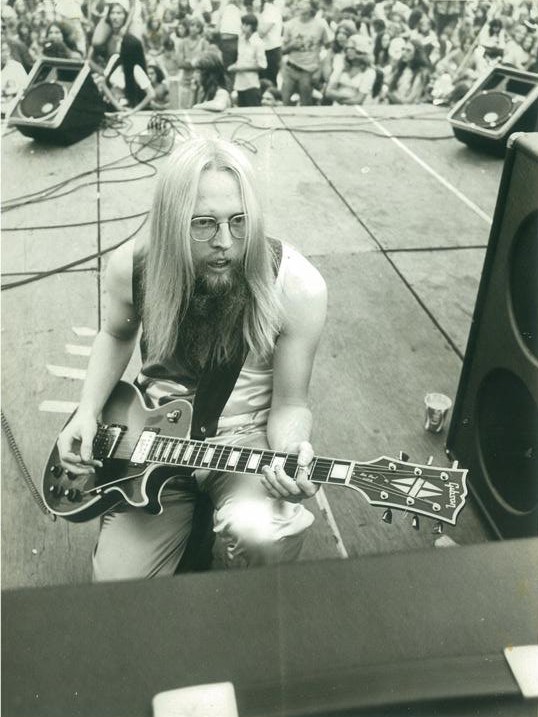
You’ve recently been seen hobnobbing with Ray “Boom Boom” Mancini and featuring in the movie Youngstown: Still Standing. How has your hometown of Youngstown influenced your music and career?
It was way cool to play for world champion Ray “Boom Boom” Mancini. Getting involved with Ed O’Neal (Modern Family) and Ray was excellent, and being included in their movie was awesome.
Youngstown, Ohio, located right between Cleveland, Ohio, and Pittsburgh, Pennsylvania, was a pretty good place for a musician.
You could get to play lots of live shows in so many towns because there were so many places with live music. We became traveling musicians, wearing out lots of tires. While some bands stuck to a certain area, we went to so many places, trying to expand our ability to sell records.
I appreciate everything good that has happened for Poobah. Hard work has probably been responsible for lots of people knowing the band name.
With ten studio albums under your belt, are there any unfulfilled musical ambitions or projects you still hope to tackle? What can fans expect next from Poobah?
I think I have recorded enough Poobah material to release about 20 albums. I admit that having my songs in Hollywood movies with the stars of X-Men, Game of Thrones, 48 Hours, Modern Family, Superstore, Breaking Bad, and more has been a thrill for me. One of the exciting, excellent things that happened to me was walking into the recording studio in Memphis, Tennessee, and seeing Jimi Hendrix’s bassist Billy Cox sitting there. He told me he had been hired by our record label at the time to produce my album! We also opened a show for Billy Cox in Nashville for Nitro Function (soon after Jimi Hendrix passed away). Amazing memories.
I’ve been thinking about writing a book. So much fun to talk about. I plan on making more Poobah recordings because I love it.
In the modern era of music streaming and digital downloads, how do you see the role of albums like ‘Burning In The Rain’ in terms of reaching new audiences? Do you think the anthology format still holds relevance today?
I think putting out this anthology, ‘Burning In The Rain,’ will be a good thing for everyone who loves Led Zeppelin, Ozzy, Jimi Hendrix, Jeff Beck, and Deep Purple, Pink Floyd, AC/DC, Montrose, and good rock music in general. They will love this album. It’s a good place for anyone who hasn’t heard Poobah to check out the band. It’s also great for anyone who enjoys good guitar rock. I’m very proud of the music. I certainly think it’s going to expand the name Poobah.
I think, no matter what format people listen to, good recordings will live on long after the artist is gone. I believe the anthology of Poobah is good enough to grow a life of its own on any format.
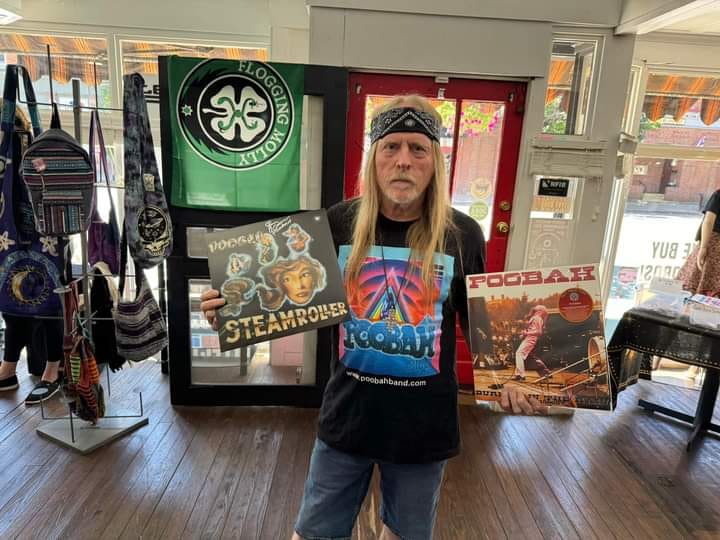
Lastly, what advice would you give to young musicians?
As the business changes constantly, it can be frustrating for artists to compete in markets where 100 bands go after 5 band jobs. I might suggest that a band learns both covers and original music, so you can get more work playing live. When you are successful and popular, you can get away with playing only original music. If you only play every other month, you’re going to have to find an income to live. Some guys play in 4 different bands to try to stay working. You must make original music on recordings to rise above. Try to stay together so you can move forward. It’s hard to keep a band together, but it usually takes a team to get anywhere in this hard business.
Klemen Breznikar
Poobah Official Website / Facebook / Instagram
Ripple Music Official Website / Facebook / Instagram / Twitter / Bandcamp / YouTube
Poobah | Jim Gustafson | Interview

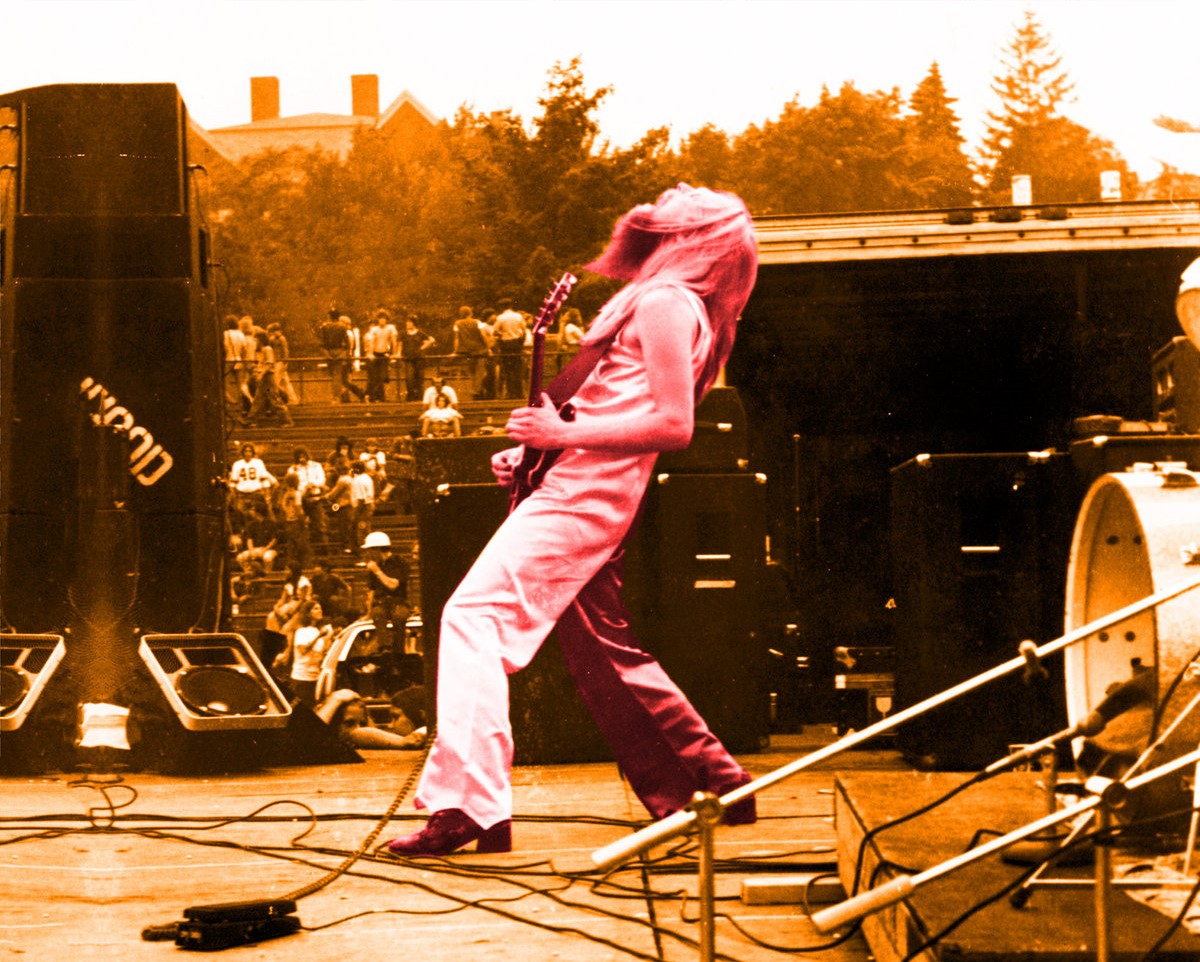
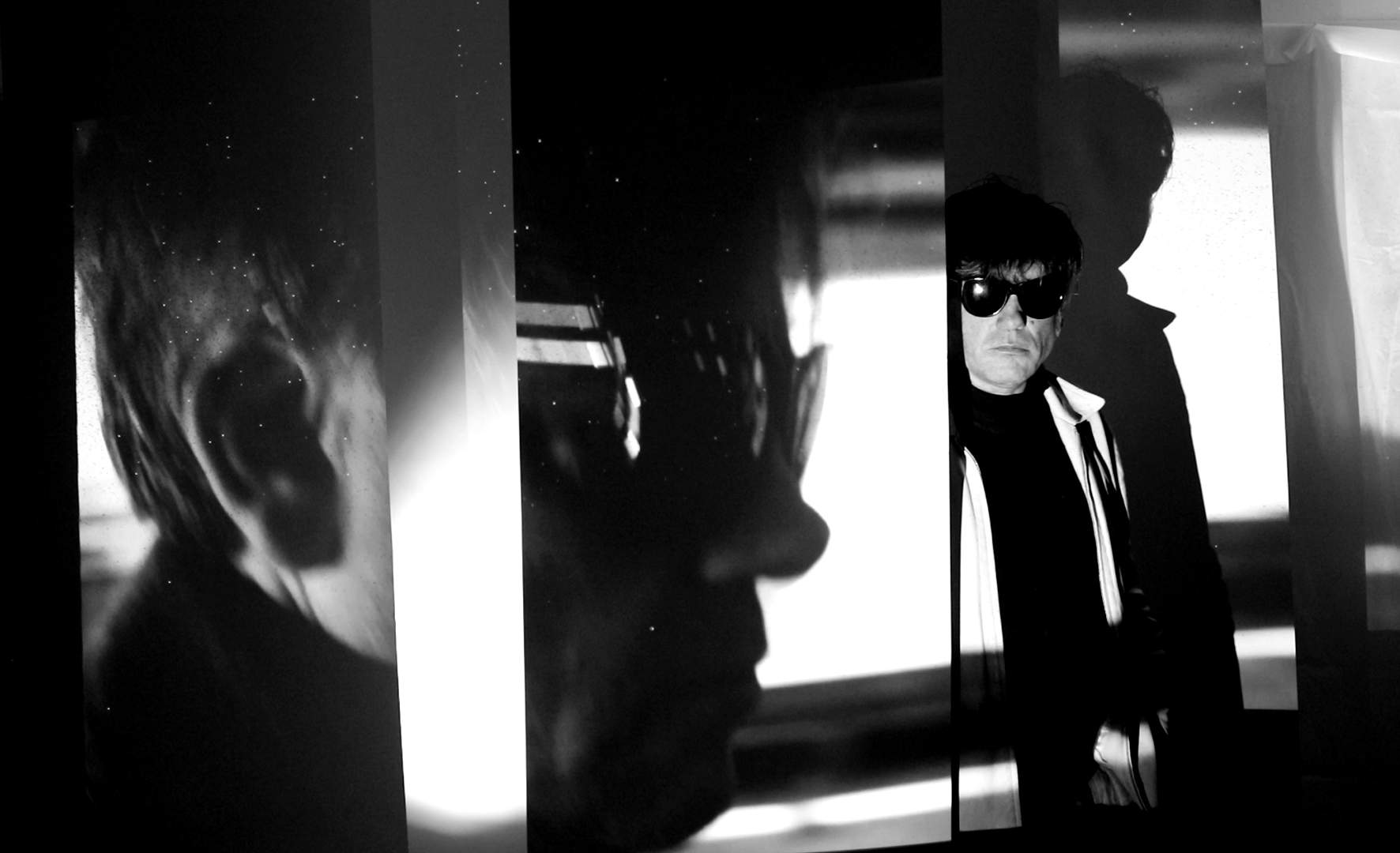
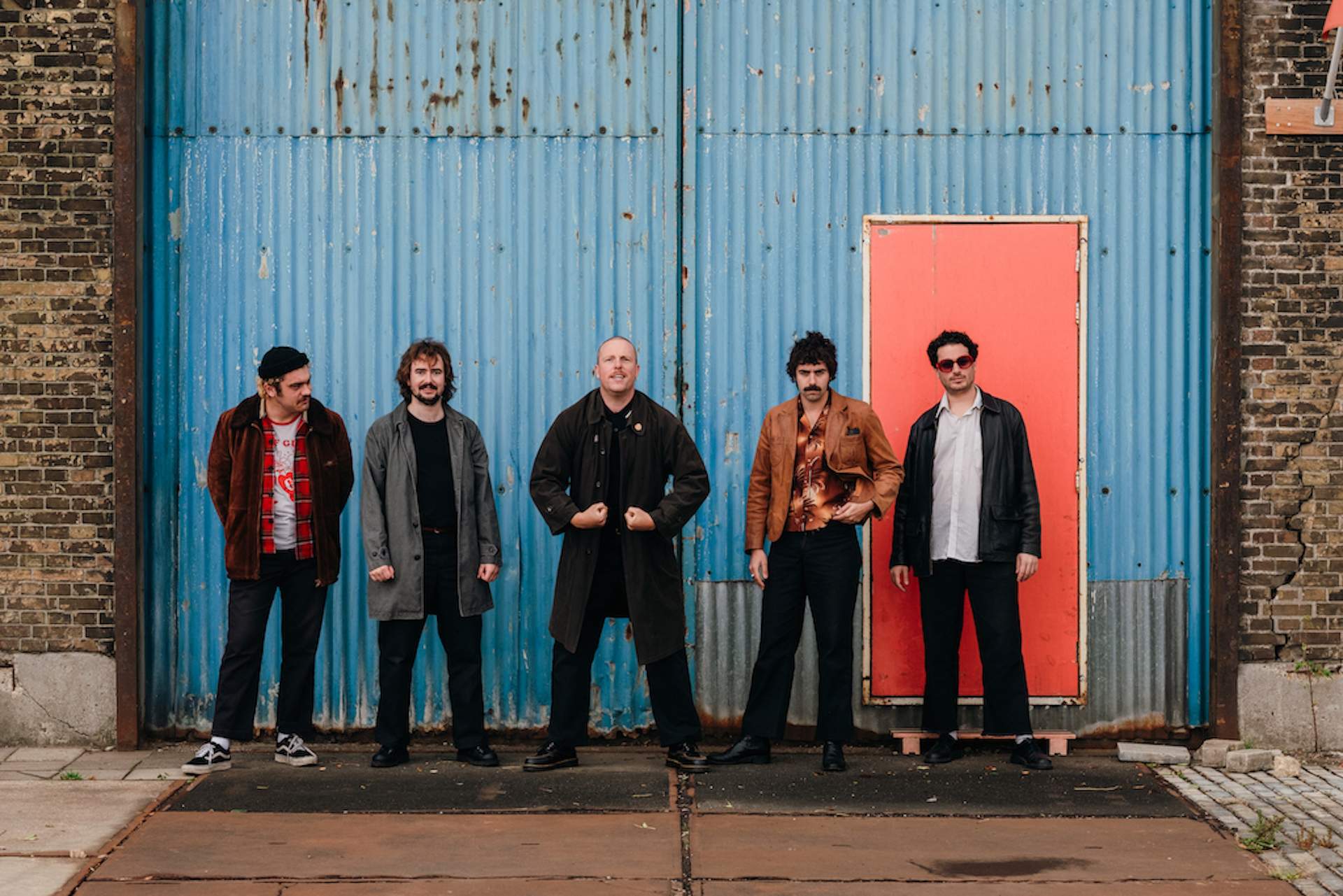

Poobah Rules! Great interview and a thoroughly enjoyable read, Jim and Klemen! Love it!
Jim, I very much enjoyed reading this interview! Your love of music and performing really came through as did your humility, kindness and dedication.